Nancy Canyon
[featured image is “Pond Lily” by Canyon]
Nancy Canyon’s Saltwater (Independent Writers’ Studio Press, 2014, 2019) maps a life’s trajectory from 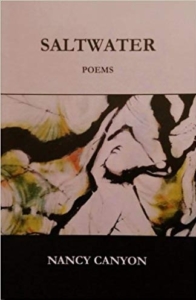 childhood abuse and loss to healing. Though the chronology is from childhood to womanhood, the poems also march from a closed, inner space, claustrophobic, smothering — to an openness where even “skin to skin” contact evokes “meeting in the wilds, / running in meadows.” On the back cover, Mary Gillilan describes how Canyon “bares her soul in order to free it in poems told with white-knuckle honesty” — concluding, “Saltwater delivers the life of a woman from the inside out.”
childhood abuse and loss to healing. Though the chronology is from childhood to womanhood, the poems also march from a closed, inner space, claustrophobic, smothering — to an openness where even “skin to skin” contact evokes “meeting in the wilds, / running in meadows.” On the back cover, Mary Gillilan describes how Canyon “bares her soul in order to free it in poems told with white-knuckle honesty” — concluding, “Saltwater delivers the life of a woman from the inside out.”
I emailed Nancy with a few questions and she emailed back, generously sharing her publishing history (a novel, Celia’s Heaven, and an ebook of short-short fiction, Dark Forest, a memoir, forthcoming) and her influences:
I have put together a number of poetry books that I haven’t published yet. They sit on my computer, waiting I guess for a big collection of my poems, since I have over 150 poems in just one file. Many poems I’ve written during February Peace Poem month, April poetry month & August postcard month. Most of the poems I have published are in anthologies, such as Take a Stand: Art Against Hate, This Uncommon Solitude, and For the Love of Orcas. I favor World Enough Writers and the work Lana Hetchman Ayers does. I have a poem in her anthology Ice Cream Poems titled “Outdoor Theater Church.” And another poem, “The Thing He Secreted,” in Last Call. And I do love Crab Creek Review, where I was a fiction editor back in 2007. The journal was then run by some of my good friends Kelli Russell Agodon & Annette Spaulding-Convey. Kelli and I went to graduate school together at PLU. She is the person who got me started writing poetry. Writing poems helped my fiction, and it gave me a reprieve from writing long documents.
Night Dance
A raven danced on my roof tonight.
He whirled beneath a silvery moon
dangling from an invisible thread in the sky.Raven’s black eyes darted, lustrous wings
unfurled, feathers ripped through chill
of night air, gathering me into an embrace.Like a coin flicked by a child, we spun at the peak,
burning a smoke signal of gratitude to Great Spirit
for carrying sleeping children in His arms.—Nancy Canyon

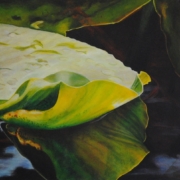
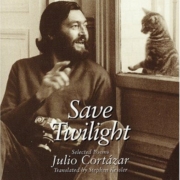
 I purchased a copy of
I purchased a copy of 
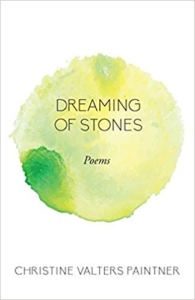 Easter Sunday seems a good day to share a poem from
Easter Sunday seems a good day to share a poem from 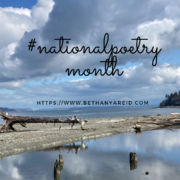
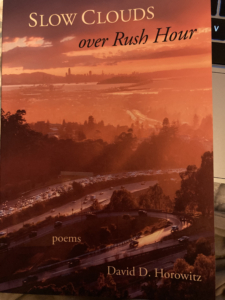 David D. Horowitz, as most Seattle poets know, is
David D. Horowitz, as most Seattle poets know, is